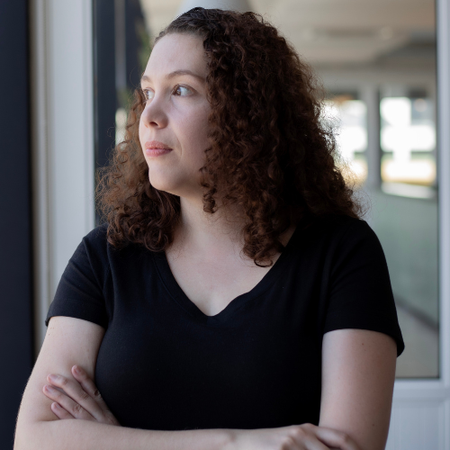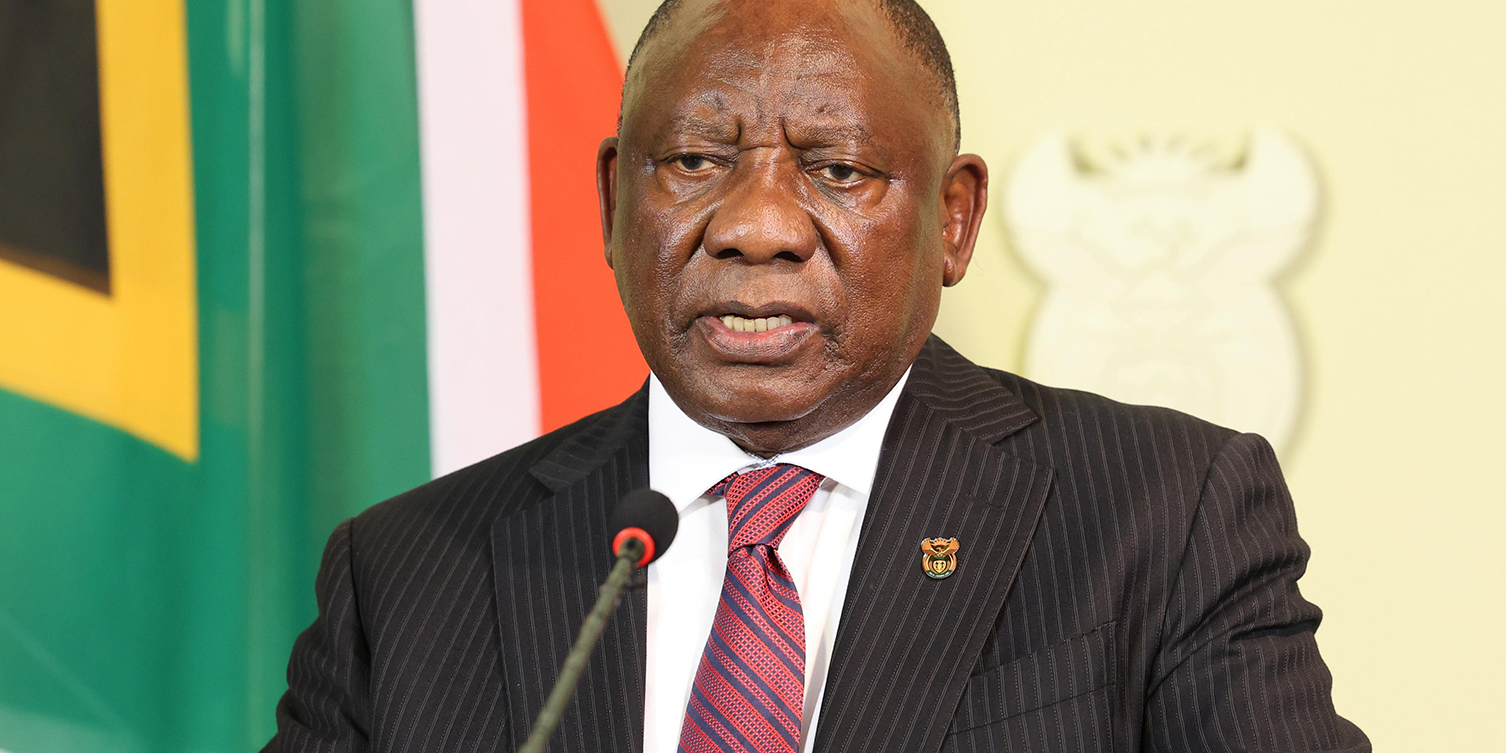Spies, prosecutors, magistrates and police officers.
These are among the figures a judicial commission of inquiry will focus on following an unprecedented policing scandal that has exposed rival factions in South Africa’s law enforcement arena.
President Cyril Ramaphosa announced the creation of the commission of inquiry during an address to the nation on Sunday.
His speech came a week after KwaZulu-Natal Police Commissioner Lieutenant General Nhlanhla Mkhwanazi made a series of astounding accusations about fellow police officers and other state officials.
Mkhwanazi’s allegations included that:
- A high-level criminal syndicate is operating in South Africa, and it extends into the South African Police Service (SAPS), the Police Ministry, Parliament, official prison structures, the judiciary and other law-enforcing authorities.
- A drug cartel headquartered in Gauteng controls that syndicate.
- At the end of last year, Police Minister Senzo Mchunu issued a directive to disband the Political Killings Task Team to shield politically connected members of a criminal syndicate from prosecution.
- Mchunu was in cahoots with individuals including organised crime accused Vusi “Cat” Matlala.
Mchunu denied the accusations.
Read more: Mkhwanazi’s warning — drug cartel, criminal syndicate infest SA law enforcement
Ramaphosa had not been able to deal with the matter sooner because he was in Brazil attending a BRICS summit.
In his address on Sunday, Ramaphosa said: “The allegations made … raise serious concerns around the Constitution, the rule of law and national security.”
‘Infiltration of law enforcement’
He announced the creation of a judicial commission of inquiry into Mkhwanazi’s allegations.
“The commission will investigate allegations relating to the infiltration of law enforcement, intelligence and associated institutions within the criminal justice system by criminal syndicates,” said Ramaphosa.
“Among the allegations that the commission may investigate are the facilitation of organised crime; suppression or manipulation of investigations; inducement into criminal actions by law enforcement leadership; commission of any other criminal offences and intimidation, victimisation or targeted removal of whistleblowers or officials resisting criminal influence.”
It would look into whether any members of the national executive overseeing the criminal justice system were complicit in criminal activity, as alleged by Mkhwanazi.
“The commission will be asked to report on the effectiveness or failure of oversight mechanisms, and the adequacy of current legislation, policies and institutional arrangements in preventing such infiltration,” said Ramaphosa.
“It will make findings and recommendations for criminal prosecutions, disciplinary actions and institutional reform.”
Acting Deputy Chief Justice Mbuyiseli Madlanga will chair the commission, assisted by advocates Sesi Baloyi SC and Sandile Khumalo SC.
An interim report is expected in three months, and another in six months.
Cachalia ‘replaces’ Mchunu
Ramaphosa also announced on Sunday that Mchunu, appointed as police minister a year ago, had been placed on leave with immediate effect.
Mchunu issued a statement late on Sunday, saying: “I welcome and respect the President’s decision and pledge my commitment to the process.
“Honour and integrity are the virtues I personally subscribe to and which we all need to make efforts to uphold. I stand ready to respond to the accusations against me and account to the citizens of the Republic, fully and honestly so.”
MEDIA STATEMENT⁰
Date: 13 July 2025MINISTER OF POLICE, MR SENZO MCHUNU, ACCEPTS AND SUPPORTS THE DECISION OF THE PRESIDENT
The Minister of Police, Mr Senzo Mchunu, will be taking a leave of absence from his official duties following serious allegations levelled against him…
— Senzo Mchunu (@Senzo_Mchunu_) July 13, 2025
A Cabinet minister will fill Mchunu’s position until August, when Firoz Cachalia, the National Anti-Corruption Advisory Council’s chairperson and a former Gauteng community safety MEC, will take over.
Cachalia will become acting police minister only in August because he is a professor of law at the University of the Witwatersrand, a position from which he is retiring at the end of this month.
Spies, prosecutors, magistrates, cops
Mkhwanazi’s accusations, meanwhile, painted South Africa’s criminal justice system as infested with corrupt officials.
And Ramaphosa on Sunday, when outlining what exactly the judicial commission of inquiry would look into, referenced past and present state officials, ranging from spooks to prosecutors.
“The commission will investigate the role of current or former senior officials in certain institutions who may have aided or abetted the alleged criminal activity; failed to act on credible intelligence or internal warnings; or benefited financially or politically from a syndicate’s operations,” he said.
“These institutions are the South African Police Service, National Prosecuting Authority, State Security Agency, the judiciary and magistracy, and the metropolitan police departments of Johannesburg, Ekurhuleni and Tshwane.”
This suggests that even state agents who operate mostly in secret could be investigated.
As for members of metro police departments being focused on, this may directly link to what Mkhwanazi has alleged about a drug cartel headquartered in Gauteng.
He said the cartel was importing drugs from South America and that these consignments often entered South Africa through the Port of Durban.
Read more: Blood ties: South Africa caught in a web of murderous, drug-smuggling Brazilian gangs
In 2022, when responding to Daily Maverick inquiries about that trafficking route, the Hawks said: “Police officers have previously been arrested in cocaine interceptions, particularly related to Durban.
“[A] special task team has been assigned to conduct investigations which are ongoing and still sensitive.”
The Hawks also said that officers from Johannesburg’s Metropolitan Police Department and the SAPS had been identified in a major drug confiscation in that city and were under investigation.
‘Cowardly’ and ‘slow’
On Sunday evening, politicians and political parties reacted to Ramaphosa’s announcements.
The EFF was “appalled” that Mchunu had merely been placed on leave, saying this was a “cowardly deflection, designed to shield” Mchunu.
The EFF’s Statement on the Decision to Place Senzo Mchunu on Special Leave
-This decision is not only illegal, it is also a flagrant abuse of state resources. It allows Senzo Mchunu to continue drawing a full ministerial salary under the guise of “special leave”, while the… pic.twitter.com/Krgo2iURHG
— Economic Freedom Fighters (@EFFSouthAfrica) July 13, 2025
The Good party said that while the establishment of a judicial commission of inquiry was well-intentioned, the process was “too slow, too cumbersome, too costly”.
Parliament’s police committee chairperson, Ian Cameron, said: “Police capture is real. Parliament and SAPS leadership cannot wait for yet another long, expensive process while trust in policing collapses further.
“A commission is only as good as the will to act on its findings, and so far that track record is poor — maybe this can somehow be better?”
He said the appointment of Cachalia as acting police minister was “commendable.”
ActionSA’s Dereleen James said the party saw “no logic in yet another commission of inquiry carrying out work that law enforcement and agencies like [the Independent Police Investigative Directorate] should be doing.” DM





 President Cyril Ramaphosa during his address to the nation on 13 July. (Photo: GCIS)
President Cyril Ramaphosa during his address to the nation on 13 July. (Photo: GCIS)